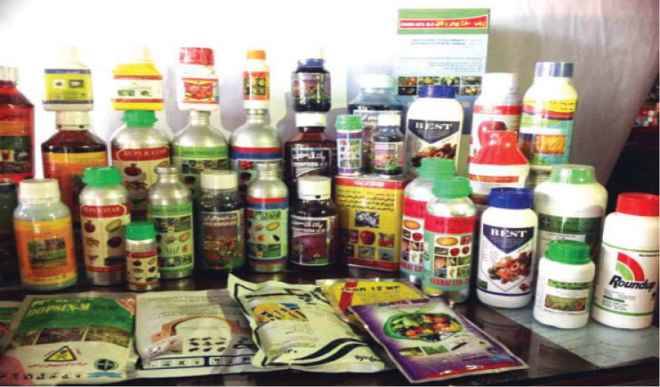
…SON, experts warn of danger
The growing market for agrochemicals in Nigeria has attracted counterfeiters whose fraudulent activities are flooding the country with huge quantities of fake products. Over 70% of Nigeria’s 190 million people are said to be farmers.
Agrochemicals such as pesticides, herbicides, fungicides, insecticides as well as fertiliser are commonly used in agriculture to control weeds, pests, improve crop performance and increase crop yields.
Fraudsters and counterfeiters eye the global agrochemical market estimated to net $266 billion in 2021 and $308.92 billion by 2025, according to studies.
Over 20% of that market share will be lost globally to the adulteration and counterfeiting industry.
The growing agrochemicals market in Nigeria is driven by a rapid population expansion, demand for food and more people taking to farming in the country.
The Director General, Standard Organization of Nigeria (SON), Osita Anthony Aboloma, recently raised an alarm over the influx of adulterated and substandard agro-chemicals found in many stores across the country.
He stressed that the situation was counterproductive to the country’s drive to rejuvenate its agro-economy.
Speaking in Kano during the public sensitisation workshop organized by the organisation to educate farmers and agro-chemical dealers on the dangers associated with using substandard and adulterated inputs, Aboloma said most of the products in the markets are substandard and adulterated.
“Current investigation by the Standard Organisation of Nigeria of the agro-chemical products in the market confirmed that most of the pesticide products are substandard, containing contaminated contents or do not contain any active ingredients; some are falsified with false country of origin, or re-labelled expired stock, illegal, illicit or counterfeit copies of legitimate brands.
“Like you are aware, pesticides are useful in boosting food production, but equally, they have their own side effects, and if a pesticide that is approved by NAFDAC for use in the country has its own side effects, then you can imagine what the side effect could be for the substandard ones,” he noted.
The DG, who was represented by the Director in charge of Operations, Felix Nyaddo, said instead of aiding a boost in agriculture, and subsequently food security, the products were rather impacting negatively to the sector due to their degrading effect on the soil and crop productivity.
He urged farmers and the agro-chemical dealers to be conscious of the agro-chemicals they buy or sell to the public as most of them are harmful to human health as well as the ecosystem.
The chairman All Farmers Association of Nigeria (AFAN), Kano State chapter, Farouq Rabi’u Mudi, said for long, farmers in the North-west region have been suffering losses in their annual outputs due to wrong use of substandard chemicals on their farmlands.
The Food and Agricultural Organisation (FAO) has warned that “Any pesticide user should first avoid choosing products whose origin is not guaranteed. The efficacy of these products cannot be guaranteed and they can be more toxic to humans and the environment than products from a bona fide source as they contain toxic impurities normally eliminated by reputable manufacturers.”
Manton Samuel Mark and other researchers from the University of Jos, in a study of ‘Environmental Impact of Pesticides Usage on Farmlands in Nigeria’, reiterated that the chemicals posed a serious risk not only to the environment, but also to farmers’ health.
Experts at Arjo Solution, an international firm in authentication and traceability solutions to combat counterfeiting, parallel markets and illicit trade, captured it thus: “The use of fake products generates lands depletion, compromises crop yield and threaten farmers’ health.”

 Join Daily Trust WhatsApp Community For Quick Access To News and Happenings Around You.
Join Daily Trust WhatsApp Community For Quick Access To News and Happenings Around You.


